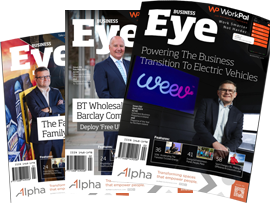The survey was carried out during June when the lockdown restrictions, put in place due to the coronavirus pandemic, had started to be gradually eased.
Compared with the first quarter of the year people felt more confident about their future financial position, their job security and the amount they expect to spend on expensive items, but less confident about their current finances. When compared with the second quarter of last year, confidence was lower with regards to all four areas.
Thirty per cent of people surveyed expected their finances to worsen over the next year, compared with 23 per cent who expected their financial position to improve.
In terms of spending, 44 per cent of consumers said they expect to spend less on high-value items over the next year, compared with 21 per cent who expected to spend more.
Seventeen per cent of people surveyed said they expect their job security to worsen versus 11 per cent who expected to become more secure in their job.
Commenting on the headline figures, Danske Bank Chief Economist Conor Lambe said:
“As the economy started to reopen, consumer confidence levels increased slightly in Northern Ireland. This modest increase in sentiment is welcome, but confidence levels were lower than they were in the second quarter of last year and so we must hope for further increases going forward to provide some momentum to what is likely to be a very gradual economic recovery.”
When asked what had the largest positive impact on their confidence levels, 30 per cent of respondents pointed to the gradual easing of lockdown. A further 16 per cent of people said that government measures aimed at protecting jobs and incomes, such as the furlough scheme, had a positive impact on sentiment. Ten per cent of consumers also cited low interest rates as a positive.
However, the coronavirus pandemic clearly continued to weigh on confidence levels, with 18 per cent highlighting the lockdown restrictions as a negative factor, 8 per cent of people saying being furloughed or having working hours reduced had negatively impacted them and 6 per cent pointing to becoming unemployed due to the pandemic.
Mr Lambe said: “The findings of our survey suggest that while the easing of the lockdown restrictions and the reopening of businesses was a welcome development for many people, the unprecedented step of having to shut down large parts of the economy due to the pandemic is likely to influence consumer behaviour and willingness to spend for some time to come.”
Brexit was another area of concern with 15 per cent of people stating that the UK Government’s longer-term Brexit objectives had adversely impacted them and a further 9 per cent of people saying that the status of the Brexit negotiations was the factor that had the largest negative impact on how they were feeling.
Mr Lambe said: “Given the considerable uncertainty around what will happen when the transition period ends, many consumers continued to regard Brexit as having a negative impact on their confidence levels. For local businesses, it is important that they recognise that Brexit remains a live issue and take what steps they can now to be as prepared as possible for the changes that will take effect from the beginning of next year.”




